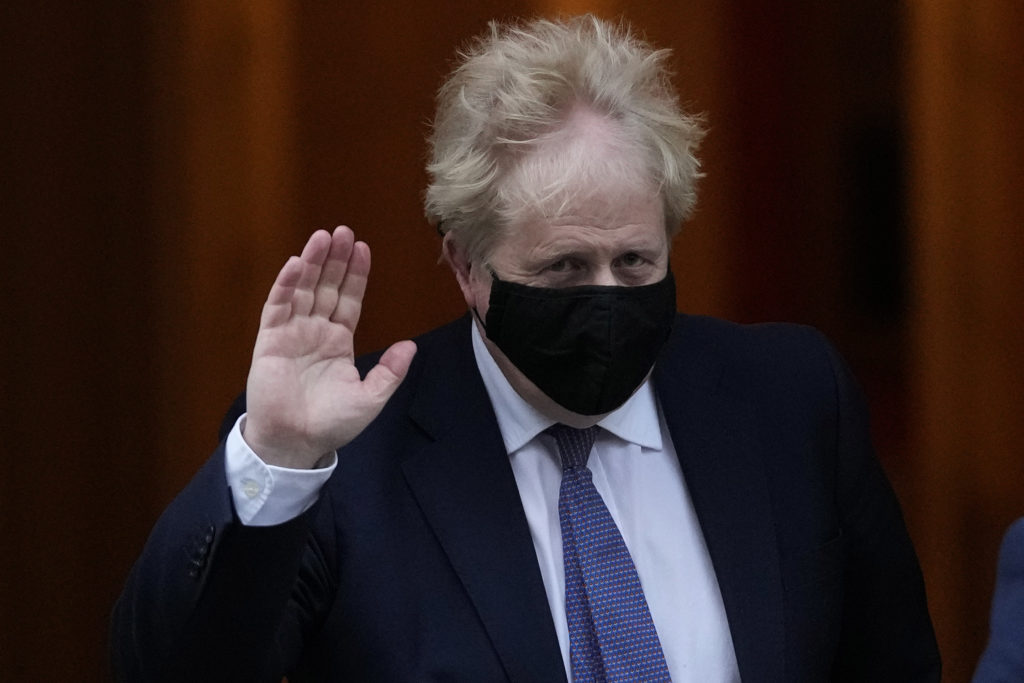One of the stranger aspects of the ‘Partygate’ discourse has been the loyalty shown by some conservative opponents of COVID-19 lockdowns to Boris Johnson’s cause. Prominent media figures on the right have jumped to Johnson’s defence over allegations that he broke lockdown rules, with arguments tending to focus on talking points like ‘this is all a waste of time’, ‘they’re out for revenge against Boris’, and ‘it was just cake’.
They are right, of course: the Prime Minister getting a bit squiffy with his staff should be a complete nothingburger – and it would be, except for the fact that this Prime Minister, along with his staff, civil servants, and Parliament, was responsible for criminalising such normal activities for all of us.
We can all accept that the lockdown rules were draconian and inhumane, whether you believe that they were worth it or, as a recent book published by the Institute of Economic Affairs suggests, that they did not justify the immense costs. By locking the country down, the government forcibly prevented us from the most basic human contact and deprived us of our most fundamental individual freedoms. Seeing friends required a mental checklist about justifications, numbers, venues, and social distance; hugging our elderly relatives was banned unless we lived with them; even the act of saying goodbye to a dying loved one was often reduced to a phone call.
To even begin justifying this and all the significant economic costs, the restrictions would need to have been extremely effective and strictly adhered to by those who insisted they were necessary to prevent a public health catastrophe. Trust in the rule of law, applied equally to the powerful and the powerless is, in large part, what separates free and prosperous societies from the banana republics and autocracies that pervade so much of the world. Boris Johnson and all the people caught flouting those rules betrayed that fragile trust.


That brings me back to my focus on these conservative lockdown sceptics. They are acutely aware of all the tremendous costs of lockdown, most spoke against it at the time, and valiantly continue to do so in an effort to stop us considering the policy ever again. And yet, many of them continue engaging in apologia for Boris Johnson, the man who first imposed those restrictions upon us and then had the temerity to break those same rules.
Yes, there is an argument that the Privileges Committee’s ultimately moot recommendation that Johnson be suspended from the House of Commons for 90 days was overly harsh and that other politicians would and have been treated differently for similar and worse conduct. But even if anti-Brexit elites were champing at the bit to go after Johnson, it still doesn’t excuse his hypocrisy, lying, and rule breaking. To argue otherwise is to hold him to a lesser standard of conduct ‘just because he’s Boris. Giving him that privilege would be the ultimate elite stitch-up. So too would letting him off the hook for breaking his own laws.
But that is all secondary to the unique perniciousness of Johnson’s lockdown partying. He made the call to lock us down and deprive us of our most basic rights. He consciously relegated the tremendous economic costs of lockdowns to secondary consideration. He delegated broad political authority to the scientific minds behind the pro-lockdown consensus. Those acts alone are worthy of condemnation, but to simply disregard the rules he imposed on us from the safety of his taxpayer-funded home office, is almost unforgivable.
Politicians are, like the rest of us, only human. They make mistakes, they break the rules, and we should generally be more accepting of that. But make no mistake, the laws and policies enacted by Boris Johnson’s government did not extend the same grace to us – they threatened us with fines, arrest, and even imprisonment for transgressing them.
One can admire Boris Johnson’s qualities and achievements without applying a double standard. All of us, especially those who fought against lockdowns, should not sacrifice our principles and integrity by doing just that. It was, after all, so much more than ‘just cake’.
Harrison Griffiths is a communications officer at the Institute of Economic Affairs.

